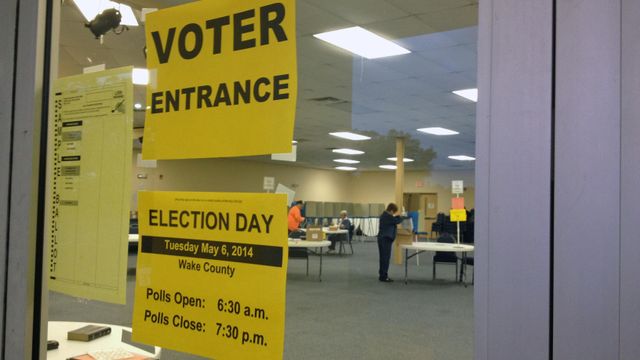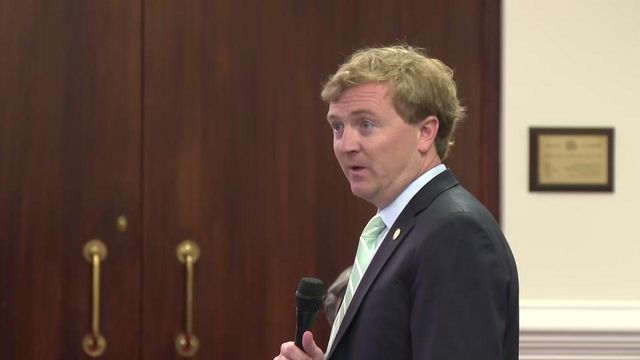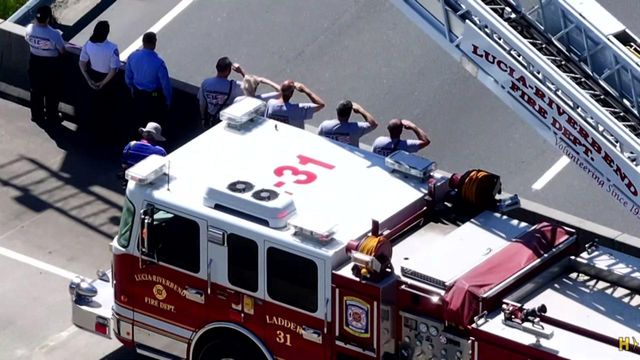NC voters pick party nominees in US, state races
North Carolina voters cast ballots Tuesday in primary races for dozens of state and federal offices, including a highly competitive U.S. Senate seat and the state Supreme Court.
U.S. Sen. Kay Hagan easily put away two opponents to win the Democratic nomination for a second term, while House Speaker Thom Tillis appeared to outlast seven other Republicans battling for the chance to face her in November.
Challengers Dr. Greg Brannon, an obstetrician from Cary, and Rev. Mark Harris, a Baptist minister from Charlotte suggested Tillis isn't conservative enough or has political baggage that would make it difficult for him to defeat Hagan in November.
Libertarians were also holding a rare Senate primary.
Five candidates are seeking to succeed the retiring Democratic Congressman Mike McIntyre in the 7th District.
"American Idol" runner-up Clay Aiken is seeking the 2nd Congressional District Democratic nomination against former state Commerce Secretary Keith Crisco and counselor Toni Morris. Republican Congresswoman Renee Ellmers also had a GOP primary rival.
Supreme Court Associate Justice Robin Hudson had two challengers for her seat. The two highest vote-getters in the officially nonpartisan race advance to face each other in the November general election.
More than 259,000 people cast ballots in person during the early-voting period that ended Saturday – about 4 percent of North Carolina's 6.5 million registered voters, the State Board of Elections said. The early-voting turnout was higher than for the last midterm primary in 2010, when the overall turnout rate reached 14 percent.
The primaries are the first elections to be held under a new voting law the General Assembly passed last summer. The law reduces the number of days of in-person early voting from 17 to 10 and ends same-day registration starting with Tuesday's election.
The law also allows political parties to appoint additional poll observers to monitor precinct activities and gives citizens wider latitude to challenge the actions or legitimacy of a fellow voter. Under the old law, any such challenge had to come from the precinct of the voter in question. The new law allows the challenge to come anywhere from within the voter's county.
An independent issue
Ajit Dixit, an instructor at Wake Technical Community College, ran into an issue Tuesday morning that unaffiliated voters encounter from time to time during primaries.
He told WRAL News that, when he went to vote at Carpenter Elementary School in Cary at 7:30 a.m., poll workers there would offer him a only nonpartisan ballot.
"The lady said I was unaffiliated and could only vote a nonpartisan ballot," Dixit said. "I wasn't sure, so I went ahead and voted."
He found out later that the poll worker in question was wrong.
Here are the rules: Voters who are members of the Republican, Democratic or Libertarian parties can vote in only their party's primary. However, voters who are registered "unaffiliated" may choose which primary in which to vote.
"It's very rare for people to choose only to vote in the nonpartisan primary," said Gary Sims, deputy director of the Wake County Board of Elections.
If an unaffiliated voter encounters a problem obtaining a partisan ballot, Sims said, they should ask for the chief judge of the precinct. If they still have a problem, they can ask the precinct official to call the county board's helpline. If all else fails, they can ask to vote a provisional ballot. Provisional ballots are counted after Election Day after local boards of elections have a chance to rule on a voter's eligibility to vote in a particular race.











